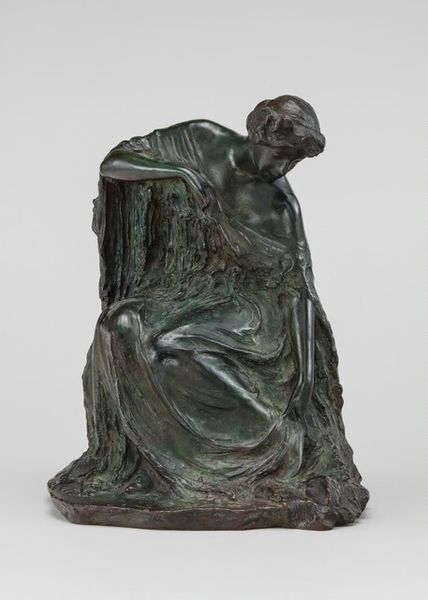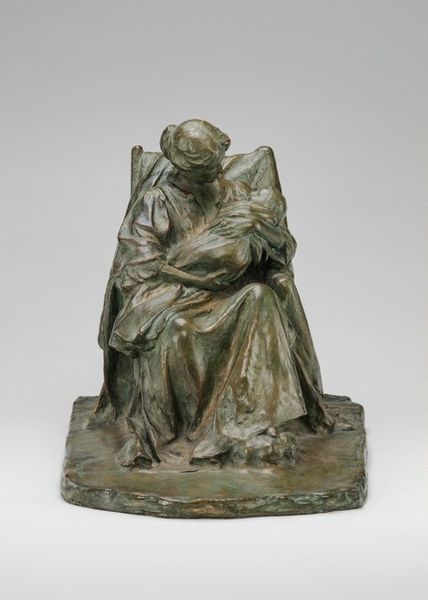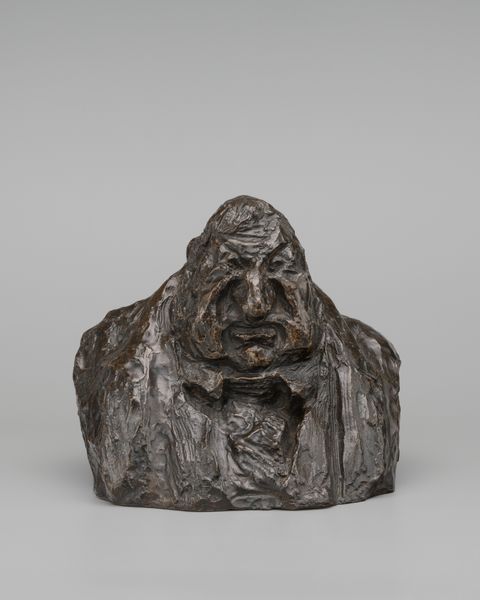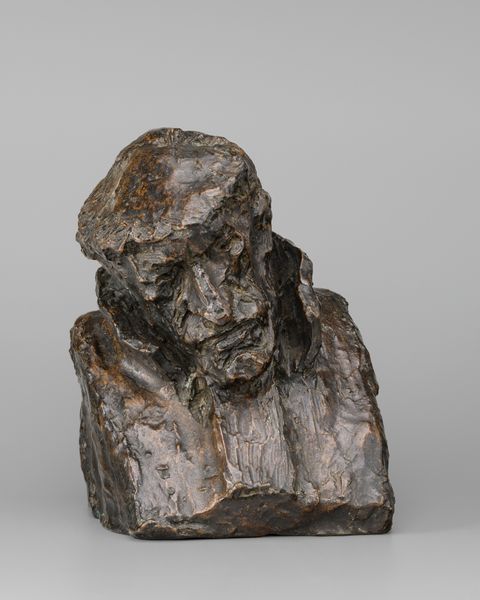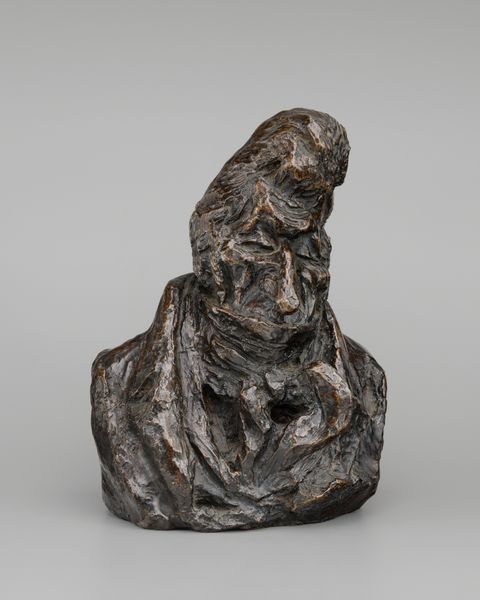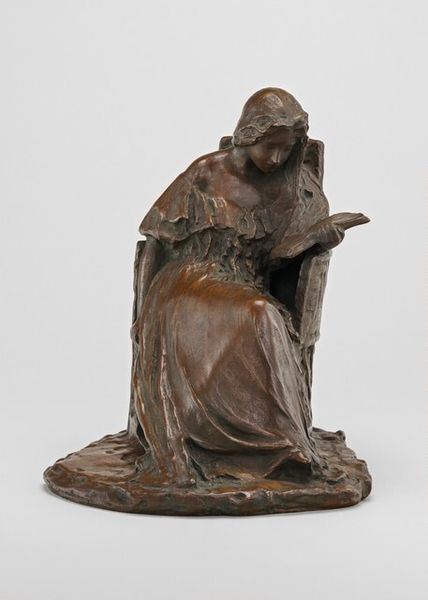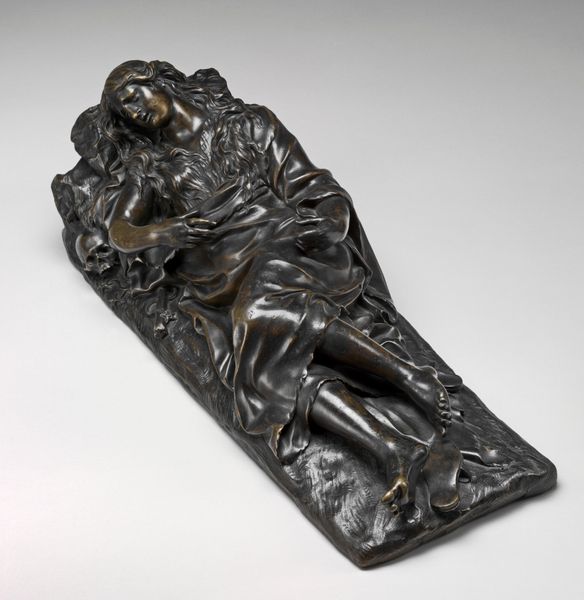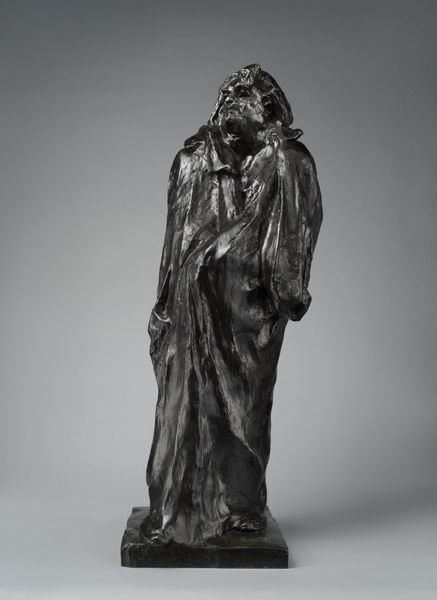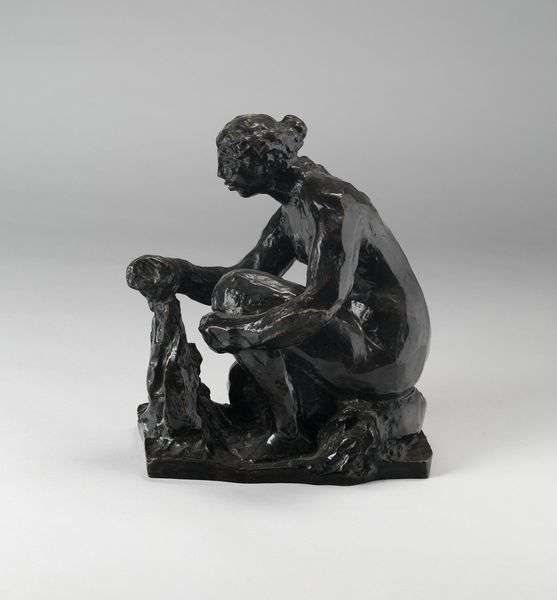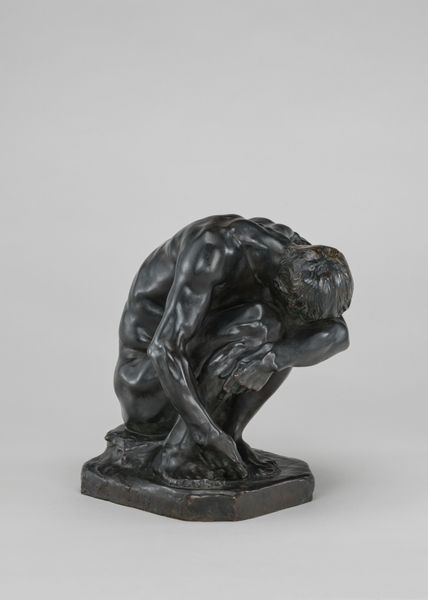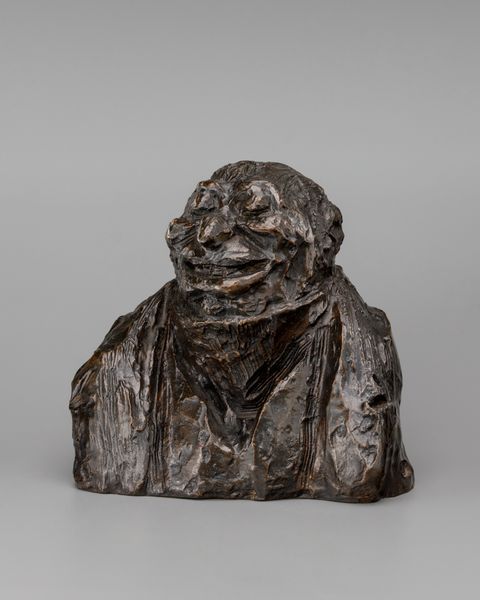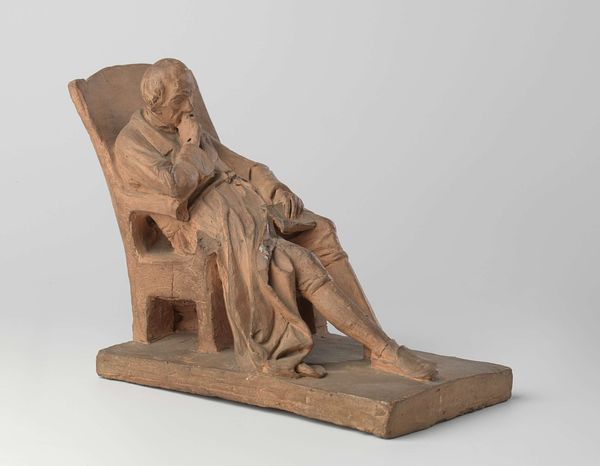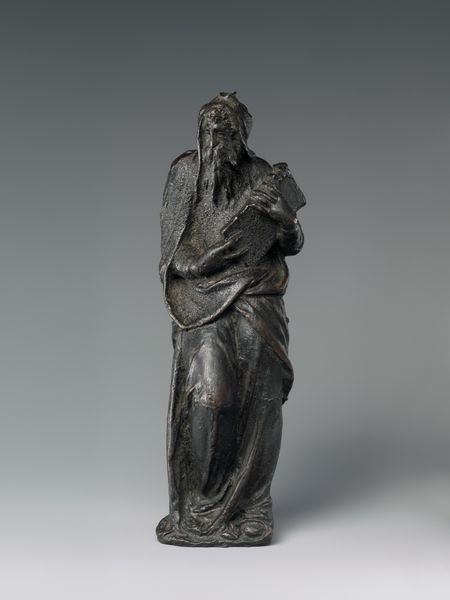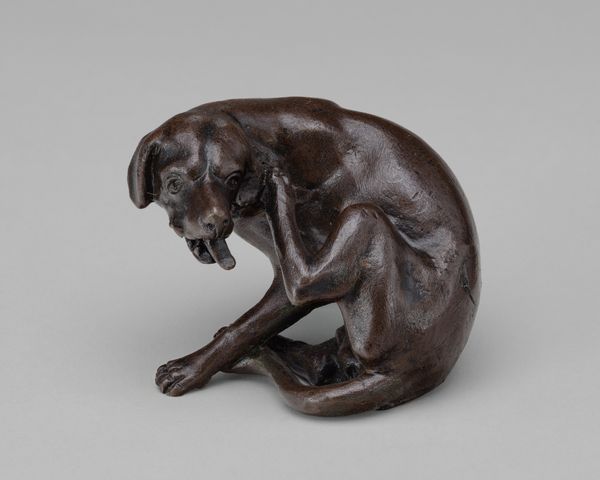
Dimensions: height 12 cm, width 15.6 cm
Copyright: Rijks Museum: Open Domain
Curator: This compelling wooden sculpture, crafted around 1778 by Philippe Curtius, is titled "Stervende man, 'The Dying Socrates', Voltaire(?)." Editor: My immediate reaction is one of profound melancholy. The figure’s upward gaze contrasts starkly with his slumped posture, suggesting a battle between hope and resignation. The scale, smaller than life-size, almost amplifies the feeling of vulnerability. Curator: Absolutely. Note how Curtius employed the baroque aesthetic, focusing on realistic figuration to underscore the intensity of the moment. Socrates, if indeed it is him, becomes an emblem of intellectual defiance, gazing upwards for answers or perhaps some sort of final truth. There’s a complex tapestry of suffering and spiritual transcendence at play here. Editor: Right, but that upward gaze… In what kind of society would sacrificing Socrates to hemlock be interpreted as “dying for enlightenment” and for "truth" at all? We really have to unpack the political framework underpinning what's considered as "martyrdom". We see time and again this theme played out, from religious zealots to those "dying for a cause", especially among the ruling and intellectual classes. How should a sculpture such as this invite contemporary discourse regarding power? Curator: Interesting point, and I see how you would view the iconography as controversial, to say the least. From my perspective, the piece captures a pivotal moment in Western thought, showing how reason battles unjust authority—the raised head serving almost as an acceptance. Notice that the details—the drapery, the musculature—echo centuries of iconic religious artworks depicting those passing from the corporeal to the divine. In fact, his passing might actually represent this precise transition: The triumph of his own, eternal philosophy over what may have seemed like political defeat. Editor: Fair enough. The tension between Socrates's philosophical contribution to posterity, and his execution speaks to a power struggle that remains unresolved even today. He's a symbol alright--for sure; though this one has left me somewhat conflicted. Curator: A fascinating paradox rendered in wood. Thanks for providing a framework for that, editor! Editor: Likewise; it's pieces like these that can often teach us the most, with some careful analysis, to reflect.
Comments
No comments
Be the first to comment and join the conversation on the ultimate creative platform.
